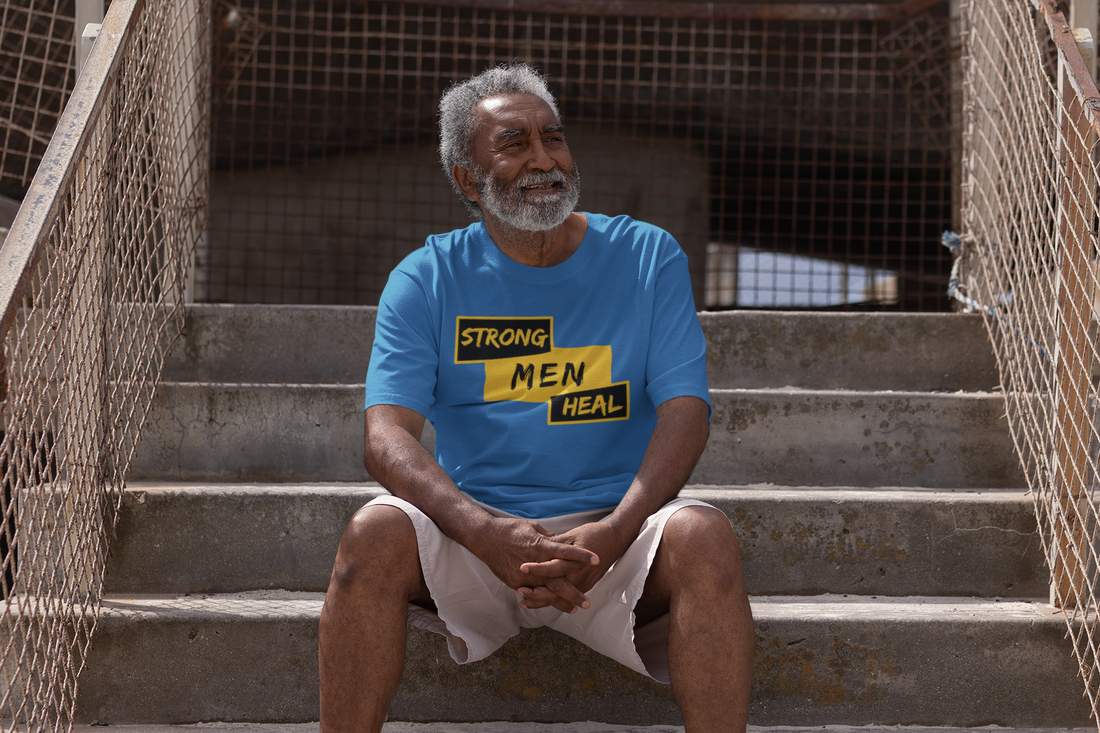
Why Men Need to Prioritize Their Mental Health
Share
Mental Health Awareness Month
May is Mental Health Awareness Month, providing an excellent opportunity for raising awareness and encouraging men to seek help when needed.
Men and Mental Health
Mental health is important for everyone, including men. As we enter Mental Health Awareness Month, it's crucial to raise awareness about men's mental health issues and the importance of seeking appropriate support. This blog will discuss the stigma surrounding mental health for men, common mental health issues, the impact of toxic masculinity, and suggest tips and resources for prioritizing mental health.
What is Mental Health and Why Does It Matter?
Mental health refers to our emotional, psychological, and social well-being. It affects how we think, feel, and act, playing a significant role in our overall well-being. Good mental health allows us to handle stress, relate to others, and make healthy choices. Mental health conditions, however, can impact daily life and relationships, making it essential to address any issues early.
Men and Mental Illness
Men experience symptoms of mental health conditions at alarming rates, but they are often less likely to seek help. Part of encouraging men to seek help begins with being able to identify some common mental health issues they face.
Common Mental Health Issues for Men
Some common mental health issues for men include:
Depression and suicide
Anxiety and stress-related disorders
Men may experience symptoms of generalized anxiety disorder, panic disorder, and social anxiety disorder.
Substance abuse and addiction
PTSD and trauma-related disorders
The Impact of Toxic Masculinity on Men's Mental Health
What is toxic masculinity?
Toxic masculinity refers to harmful gender stereotypes and expectations that men should suppress their emotions and maintain a tough exterior. This societal pressure can negatively impact men's mental health, leading to emotional suppression, low mood, and increased risk of developing mental health conditions. Breaking down these stereotypes and promoting emotional support is essential in raising awareness and improving men's mental health.
healed-ish Strong Men Heal t-shirts
Overcoming the Stigma of Seeking Help
Men may avoid seeking help for mental health issues due to fear of judgment, embarrassment, or appearing weak. However, seeking help is vital for recovery and overall well-being. Benefits of treatment include better coping strategies, improved relationships, and increased self-awareness.
Available Resources for Men to Prioritize Their Mental Health
There are numerous resources available to help men prioritize their mental health. Mental Health America, for instance, offers information on mental health care including mental health screenings, and prevention services.
healed-ish Strong Men Heal baseball cap
Tips for Men to Prioritize Their Mental Health
Self-care practices:
Incorporate activities like exercise, mindfulness, and spending time with loved ones to improve mental health and well-being.
Techniques for managing stress and anxiety:
Building support networks:
Seeking professional help:
Incorporating Mental Health into Daily Routines
Making mental health a priority means integrating self-care and awareness into everyday life. By maintaining a healthy work-life balance, getting regular exercise, and engaging in activities that bring joy and relaxation, men can cultivate mental well-being and resilience.
FAQs
Q: What are the signs of poor mental health in men?
A: Signs of poor mental health in men can include changes in mood, behavior, and physical health. It's important to seek help if you're experiencing any symptoms of mental illness.
healed-ish Strong Men Heal sweatshirt
Q: How can men talk about mental health with friends and family?
A: It can be difficult to talk about mental health, but having open and honest conversations with friends and family can help. Start by sharing your own experiences and feelings, and encourage others to do the same.
Q: What resources are available for men to seek help for mental health issues?
A: There are many resources available for men to seek help for mental health issues, including therapy, support groups, and crisis hotlines. It's important to find a resource that works for you and to seek help when you need it.
Q: Can men practice self-care for their mental health?
A: Absolutely! Self-care is for everyone and practices such as exercise, mindfulness, and spending time with loved ones, can help improve men's mental health and well-being. Making time for self-case and activities that bring you joy and relaxation is imperative!
Make It A Priority!
The importance of men prioritizing their mental health cannot be overstated. Encouragement to seek help, addressing the stigma surrounding men's mental health, and raising awareness of the available resources are essential steps in improving mental health outcomes for men.
As we observe Mental Health Awareness Month, let's work together to break down barriers and create a society where men feel empowered to prioritize their mental health and well-being.
If you or someone you know is struggling with depression, there are resources available to help. The National Suicide Prevention Lifeline provides 24/7 free, and confidential support for people in distress. You can call them by dialing 988 or 800-273-TALK (8225).



